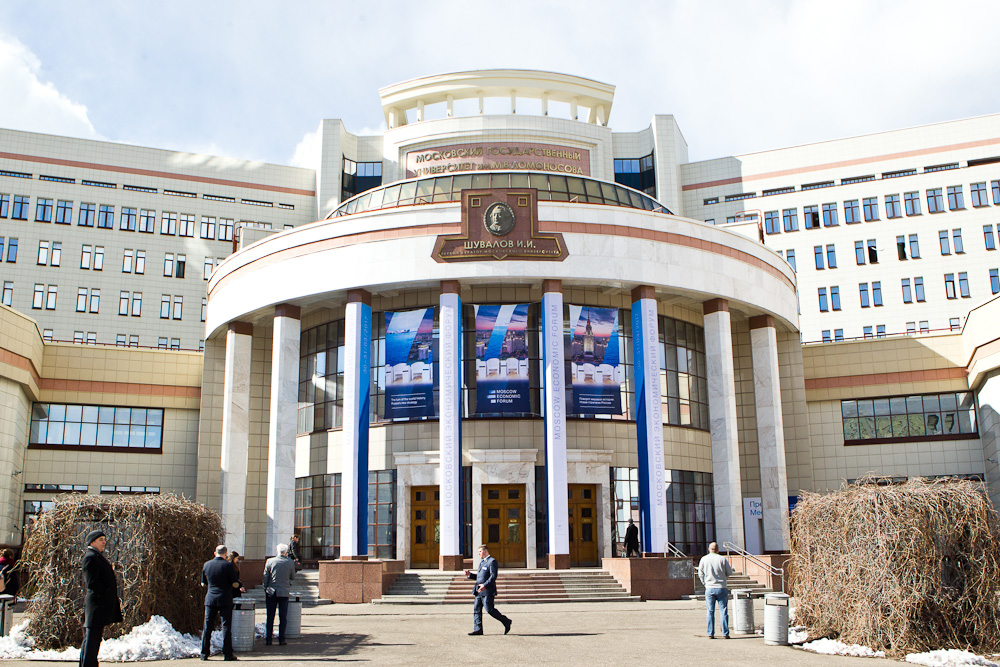
Published: March 31st, 2017
On March 31, on the margins of the V Moscow Economic Forum, experts discussed the challenges and challenges of developing science-intensive production management. At the round table "Management of high technology production in Russia: new technologies, barriers and risks", leading experts, experts in management technologies gathered. The moderators were the head of the Department of Theory and Technology Management of the Faculty of Public Administration of Moscow State University named after MV Lomonosov. Lomonosov Alexey Surin and Associate Professor of the Department of Theory and Technology Management of the Faculty of Public Administration of Moscow State University named after MV Lomonosov. Lomonosov Andrey Tsarenko.
Work with knowledge-intensive production includes several stages, says Alexei Surin. The first is the creation of inventions, the second is the introduction of inventions into mass production, the third is the management of production, and the fourth is dealing with the consequences that may arise because of this production. "We have a lot of inventors in Russia, starting with Lefty and many others, but the second is not good, because we do not know how to introduce our inventions into the very structure of production. We absolutely do not know how to work with knowledge-intensive industries, "the scientist believes.
The need to avoid autarky in the management of science-intensive production was told by the head of the Department of Management Innovations of the Plekhanov Russian Academy of Economics and the Department of Management and Service of the Russian Academy of Sciences Dmitry Zemlyakov. According to him, the sovereign path is deadlocked and leads only to a freeze of technological backwardness. Even in the conditions of partial autarky, which existed during the Iron Curtain era, there were opportunities to overcome the iron curtain in science-intensive production through third world countries, in particular, through Finland and Hungary. "The global modern world does not give the possibility of preserving any autonomous entities for quite a long time; it is a matter of national security. Therefore, we will have to form new blocks, new technological chains, "concluded the MEF Speaker.
Other barriers that stand in the way of innovative development designated Alexander Dombrovsky, vice president of the commercial bank "Acropolis", a professor at the Kuban State Technical University. First, the expert noted, Russia does not have a system for targeted training of personnel for work in high-technology industries. The state should participate more actively in this process and set strict rules for training specialists. Secondly, Dombrovsky urged to drastically change the procedure for financing and methods of federal state programs for the development of innovation and support for producers.
Chairperson of the Central Council of the All-Russian Society of Inventors and Innovators Anton Ishchenko presented the point of view of inventors. One of the primary issues of concern to scientists is the problem of protecting intellectual property. Another urgent issue is the financial.
"There is money in the banks, but they do not reach the industry. If you ask the organizer of the Forum, they will tell you what amount of money is needed in order to re-equip all production assets, which are now worn out almost by 90-95%. Our industrial development fund is only 40 billion rubles. This, respectively, a penny, "- said Ishchenko.
In order to remove these barriers, the inventive community is now interacting with the Ministry of Industry, the Industrial Development Fund, and communicating its position on the possibility of developing new promising domestic products. The All-Russian Society of Inventors and Innovators is currently preparing a list of inventions with the potential for good commercialization.
Participants in the discussion agreed that it is necessary to make the profession of an inventor as valuable and prestigious as it was in the Soviet Union, to improve legislation in the field of intellectual property protection, to increase the interest and participation of the state in financing science-intensive production and introducing innovations into the work of industrial enterprises. Business is not inclined to spend money if they do not bring quick profits.Latest news
07.05.2018 MEF-2018: debate "Cultural policy: between individual freedom and the interests of society?"
07.05.2018 MEF-2018: Conference No. 8
07.05.2018 MEF-2018: Conference No. 4
07.05.2018 MEF-2018: Conference No.3
07.05.2018 MEF-2018: Conference No. 2
07.05.2018 MEF-2018: Conference No.1
26.04.2018 McConnell Discusses Information Warfare
20.04.2018 MEF-2018: closing plenary session
17.04.2018 Mr. Freysinger: «Skripal’s case» for relationship between Russia und European Union?
